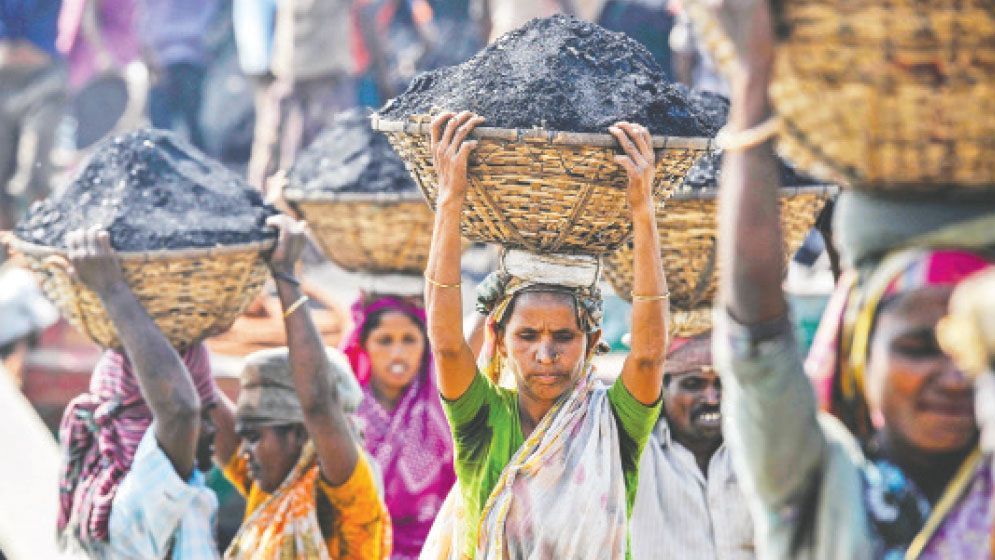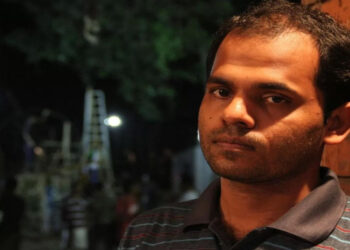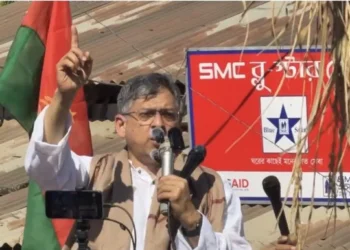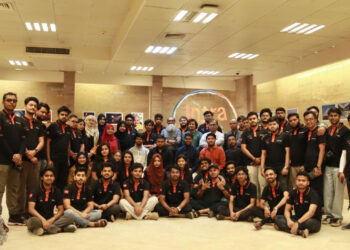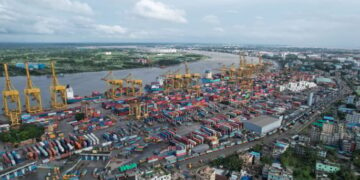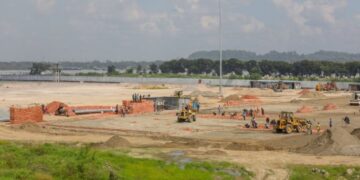As Bangladesh’s economy slows, the World Bank warns 3 million more people may fall into poverty in 2025. Here is what that means for real families and why it deserves urgent attention.
Bangladesh is a developing nation steadily rising, full of promise, and rich in resilience. Though poverty still exists, it does not overshadow the country’s determination to grow, to innovate and to build a future where progress reaches every corner of society.
The World Bank has warned that Bangladesh may face a significant increase in poverty this year. According to its latest report, titled Bangladesh Development Update, an estimated 3 million people could newly fall into poverty by the end of 2025.
This potential increase in poverty is largely attributed to slow economic growth and challenges in the labor market. These issues are particularly affecting low-income and vulnerable populations across the country.
Measuring Poverty
The World Bank defines extreme poverty as living on less than $2.15 per day. Based on this threshold, about 5 percent of the population in Bangladesh lived in extreme poverty in 2022. By 2025, that rate may rise to 9.3 percent.
National-level poverty is also expected to increase. The Bangladesh Bureau of Statistics reported a national poverty rate of 18.7 percent in 2022. The World Bank now estimates that the rate could reach 22.9 percent in 2025.
What happens when someone becomes poor?
When someone becomes poor, it’s not just a financial condition they often experience a deep, multidimensional impact on their life. Here’s what typically happens:
Basic Needs Become Hard to Meet
Food, shelter, clean water, and healthcare may become luxuries rather than rights. People may go hungry, live in unsafe conditions, or avoid medical care due to cost.
1. Treatment: Social safety nets
Like food assistance programs, affordable housing initiatives, and public healthcare systems are essential in providing immediate relief. Additionally, local charities and community-driven efforts can play a crucial role in offering support where formal systems may fall short.
2. Education Takes a Backseat
Poor families may struggle to afford school fees, uniforms, or books. Children are often forced to drop out and work to support the family, creating a cycle of poverty.
3. Mental Health Suffers
Constant stress about survival can lead to anxiety, depression, and hopelessness. The emotional toll of poverty is often invisible but very real.
4. Social Exclusion
Poverty can isolate people socially. They may feel ashamed, judged, or excluded from activities others take for granted. This lack of social support can be deeply damaging.
5. Limited Opportunities
Poverty limits access to resources like technology, transport, job training, and networks. It makes breaking free from the situation much harder.
6. Increased Vulnerability
Poor people are more vulnerable to exploitation, child labor, human trafficking, or falling into debt traps. They often have fewer legal protections or knowledge of their rights.
7. Loss of Dignity and Voice
They may feel powerless in decisions about their lives, their communities, or even their future. Their voices often go unheard in policy or politics.
Poverty is more than just “having no money.” It strips people of choices, of control and often of hope. That’s why solving poverty isn’t only about income, it is about justice, education, dignity, and equality.
These figures indicate that poverty in Bangladesh is becoming more widespread and that recent economic challenges are having a measurable impact.
Economic Growth Outlook
In addition to rising poverty, Bangladesh’s economic growth forecast has been revised downward. The World Bank projected that Bangladesh’s GDP growth for the current fiscal year could be 3.3 percent.
The World Bank expressed concern about the deterioration of poverty levels in its “Bangladesh Development Update” report published on Wednesday.
This is a decrease from the 4.1 percent projection made in January 2025. For the upcoming fiscal year, the World Bank anticipates a modest recovery, with GDP growth potentially rising to 4.9 percent.
Labor Market Challenges
The labor market is expected to remain weak. Employment opportunities are limited, and those working in informal sectors are facing increased instability. This situation is likely to affect income levels for many families and limit their ability to recover from financial setbacks. Most of the Rural families are dependent on seasonal work or small farming, are now at the mercy of both nature and market forces.
The World Bank report suggests that without targeted interventions, the economic downturn could disproportionately affect groups that are already at risk.
Read More: Exemption KUET VC and Pro-VC Amid Ongoing Student Protests
A National Wake-Up Call
We can’t look away anymore. Poverty in Bangladesh is rising not because we are lazy, not because we are broken, but because the system is strained, and millions are being left behind. It is a time to feel responsible.
If you’re reading this and you’re not struggling, know that someone close to you might be. It could be your domestic helper. The rickshaw puller who brings you home. The young woman selling vegetables at the corner store. They’re not asking for handouts they’re asking for a chance.
What Can Be Done?
This isn’t a hopeless situation. Bangladesh has always been a country of survivors. What we need now is urgency, compassion, and courage specially from those in power.
Here are a few ways forward:
-
Job creation must be a priority: The government and private sector need to invest in labor-intensive projects and small businesses.
-
Social safety nets need to be stronger: Cash assistance, food relief, and support for mothers and the elderly can make a world of difference.
-
Youth skills development : It should be expanded rapidly. A trained workforce is the backbone of any recovering economy.
-
Price control mechanisms: It must protect essential goods like rice, oil, and medicine from becoming unaffordable.
And maybe more importantly, the voices of the poor must be heard not just studied in reports, but included in the solutions.
Bangladesh Has Fought Before It Can Fight Again
We’ve overcome cyclones, famine, war, and pandemics. We’ve turned mud into mangoes, threads into global exports. We’ve shown the world what resilience looks like. Now, we must show what compassion looks like.
The road ahead is tough, but not impossible. If the government, businesses, international partners, and the people of Bangladesh come together then 3 million lives can be saved from falling. And maybe we can build a future where no child has to sleep hungry, and no dream has to die because of poverty.
Bangladesh is currently facing an economic slowdown that could push millions of people into poverty. The World Bank’s projections serve as a warning and a call to strengthen national efforts to support vulnerable populations.
Timely government action and targeted policy measures will be crucial to manage the situation and protect the progress Bangladesh has made in poverty reduction over the past decades.
The people of Bangladesh must come forward unitedly. Only then can we overcome poverty. But escaping poverty alone is not enough. We must also eliminate corruption and establish justice throughout the country.

